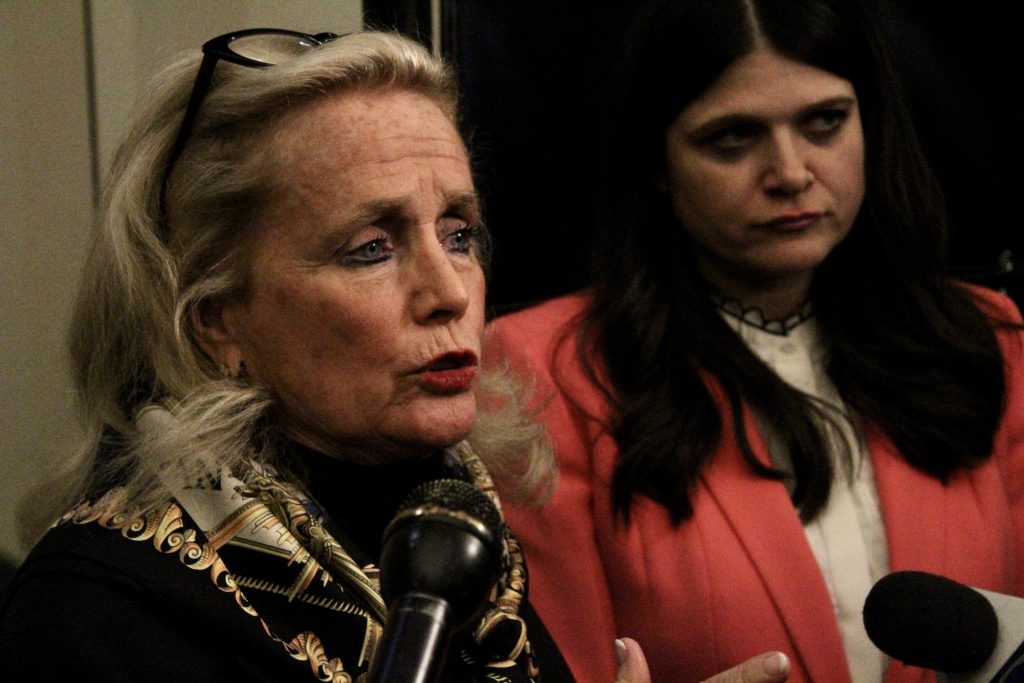US Rep. Debbie Dingell criticizes Supreme Court for limiting Clean Water Act scope
The late Michigan Congressman John Dingell helped create the 1972 Clean Water Act.

Rep. Debbie Dingell (left) and Rep. Haley Stevens at the Oakland University gubernatorial debates on Oct. 25, 2022.
Michigan members of Congress are criticizing the U.S. Supreme Court’s ruling that limits the authority of the Environmental Protection Agency.
The nation’s highest court ruled Thursday that the EPA went too far in regulating certain U.S. waterways.
The EPA decided an Idaho couple could not add dirt and gravel onto soggy property near a lake without a permit because of wetlands protected under the Clean Water Act. The Supreme Court rules the law only applies to water with a continuous surface connection.
Read: How the US Supreme Court’s latest decision affects the EPA’s ability to combat climate change
The late Michigan Congressman John Dingell helped create the 1972 Clean Water Act. His widow — current Congresswoman Debbie Dingell — says the new ruling could allow polluted materials to freely flow into rivers and lakes.
“The Supreme Court continues to undermine laws that have made a difference in this country for more than five decades,” says Dingell. “And what the Supreme Court did is undermining protections that we depend on…to keep our water safe and healthy and the ecosystems that they sustain.”
A majority of the Supreme Court Justices said that without the change, a “staggering array of landowners” were at risk of criminal prosecution. Supporters of the new rule claim it allows farmers and developers to know precisely what land is subject to EPA regulations.
Trusted, accurate, up-to-date.
WDET strives to make our journalism accessible to everyone. As a public media institution, we maintain our journalistic integrity through independent support from readers like you. If you value WDET as your source of news, music and conversation, please make a gift today.
